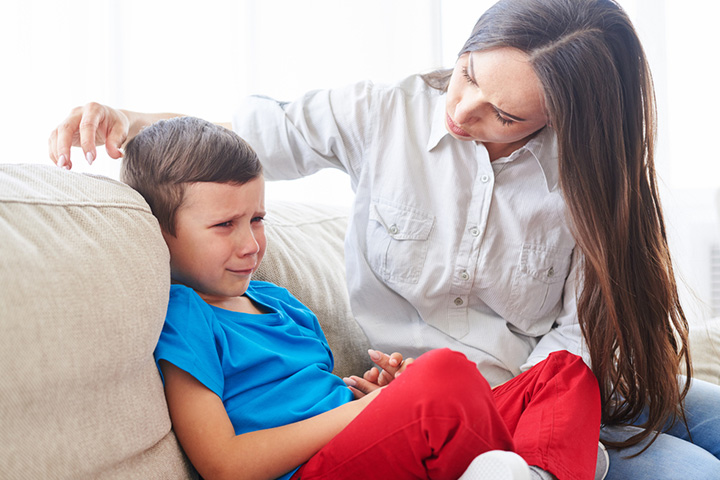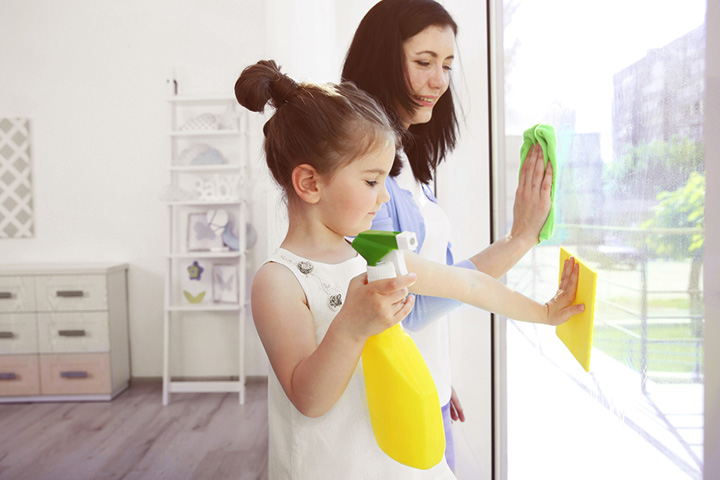
Image: Shutterstock
Did you ever feel like you were doing a decent job at parenting, and then your toddler bursts your bubble by telling you they hate you and runs away from you at a grocery store? Fortunately or rather unfortunately, you’re not the only one. Almost every single parent is convinced that they are doing a good job of raising their kids and teaching them how to behave well. But, parenting, especially discipling the kids is never as easy or smooth as it seems. Most of the time punishing your kids just blows up in your face and this isn’t entirely your kid’s fault. Sometimes adults have a hard time controlling their emotions and tend to reprimand their children more than what’s necessary. So, how can you stop this from happening? Here are a couple of reasons why punishing your kids won’t get you the results you desire and what you can do instead.
1. It Stops Your Child From Developing Self-discipline
Image: Shutterstock
Parents often forget that the main goal of parenting is to raise a person who will be ready to make their own decisions based on their experiences and values. But if you punish your child without explaining the consequences of their actions they won’t be able to separate right from wrong using their own ability to think and reason in the future. This will lead to your children having no sense of responsibility or sense of empathy which means that they will find it harder to discipline themselves in the future. Skills like empathy and discipline are harder to pick up as they grow older. Make sure you explain why their behavior was bad so that they can rectify it instead of just thinking that there is an unchangeable part of them that is undesirable that their parents don’t approve of.
2. It Promotes Fear
Image: Shutterstock
The next time you punish your kids simply ask yourself the question “Do I want my kids to be afraid of me?”. Most parents will answer this with a “no”. Why then are you using tactics to intimidate and frighten your child? Punishments often create a fear based response and reaction from your child. So although it might be effective at the moment, it can have long term ramifications on your relationship with your little one. Children who have fear based relationships with their parents are often anxious and suffer from low self-esteem.
3. Suggest, Don’t Order
Image: Shutterstock
Now that you’ve realized that punishments are not the answer to your problems, what can you do instead? Let’s be honest, you and I are more likely to comply if someone asks us to do something nicely instead of ordering us around. Sometimes adults can forget that children work the same way. Most parents make the mistake of thinking that being stern and giving ultimatums are the only way to get their kids to listen. But these traditional methods were never the answer.
They didn’t work for you and they won’t work for your child unless you want them to be ruled by fear. Be aware of the way you phrase things and the tone you use while talking to your little ones. For example, saying “clean up that mess you made” and “would you like to tidy up together?” are two ways that yield the same result. If you employ the latter, you actually might have some success in getting what you want voluntarily.
4. Teach Your Children To Apologize
Image: Shutterstock
Saying sorry is the most important yet underrated skill you absolutely should teach your child. It’s very easy to lose your temper when your child is getting on your nerves and driving you up the wall. One way you can teach your kids how to say sorry is to do it yourself. If you’ve had an outburst, apologize and explain to them why they made you so upset.
Another thing you can do to encourage the habit of apologizing is to immediately validate your child with positive reinforcement whenever they say that they are sorry. Accept their apology and don’t bring up their mistake again. Instead, tell them that you are glad that they apologized and that they did the right thing. This will help them realize that apologizing is a good course of action if they want to mend a relationship or fix a situation.
We know how hard it can be to keep your cool when your child is having an off day. But punishing them is a short term solution to your problem. Now that you know a couple of alternatives, try to sit down and have an open conversation with your kids calmly. You got this! Happy parenting.
















